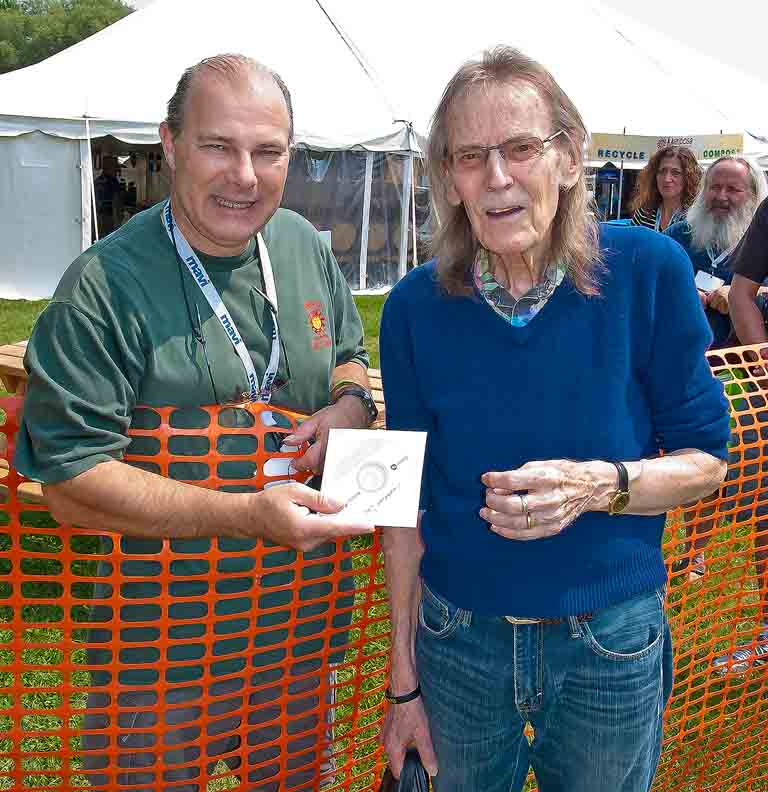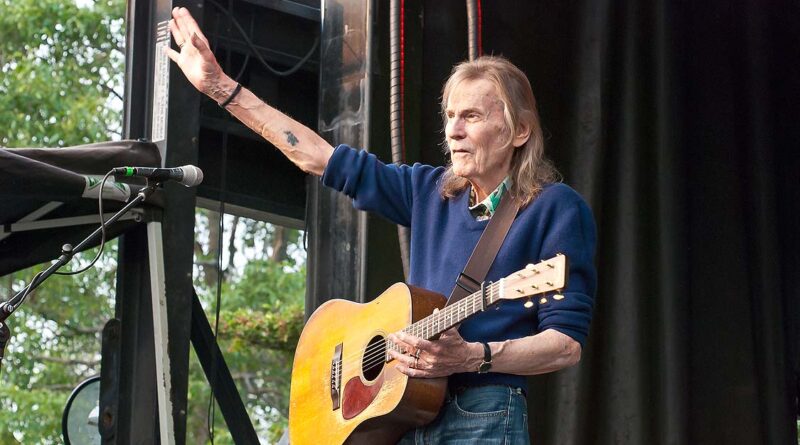On Gord
By John Swartz
Since Monday evening I’ve had time to think, trying to understand my feelings about Gord’s death, juxtaposed with the comments people are making online and wondering what it is about Gord so many people were drawn to him.
Then it hit me. It’s not just the music. I studied sociology. Taking a one-off, fill the schedule, introductory course opened me to how to understand things that had puzzled me – why do people do the things and think the things they do? Or more specifically, why do I think and act like others at times, and why is my table empty at others (or a lot, depending on one’s perspective). The tools I learned helped to understand how Gord affected people.
When someone everybody knows and admires, who also meets hundreds of people each week, remembers your name there’s an emotional response generated. When that person goes out of their way to greet you, or recognizes you in a familiar way in a public setting, there too is also an emotional response. When the conversation picks up where it left off last time a bond is formed which changes the relationship from ‘someone I know,’ to he or she is a friend of mine.
This week I discovered there are dozens of people who have similar stories like mine. They felt a bond of friendship with Gord, different from the millions who love Gord like a friend, but never had a meaningful conversation with him (which is not to say encounters people have had are not meaningful to them).
There was an appeal, an attraction like a magnet Gord had few people
possess. From a sociological point of view the burning question is why?
Simply put, Gord was a very likeable person. He cultivated being likeable, but I don’t think deliberately. Some of it comes from the profession he pursued, a musician is nothing without fans, and poor if no one buys what they are selling.
To stand in the wing and observe how he accommodated his fans who want something from him – very often to autograph an album jacket, or a pose for a photo, I never once heard Gord say no. The only time he left anyone in the lurch was when he was being pulled away by his assistant(s). He wanted to meet every fan.

There were times at Mariposa he stayed past midnight signing everything shoved into his hands. Accommodating everyone moved slowly because he would talk with each person, sometimes for what seemed like a very long time if you were next. There was a warmth at play, especially noticeable when it came to old friends from childhood, classmates and former teachers (yes, there was once a former teacher Gord was astonished to see again).
It’s a crushing life to live, always being on stage. The people around Gord were protective and proactive keeping the throngs at bay, particularly before showtime. Being a man of the people can be exhausting. Gord can’t be blamed for rushing from the parking lot to a dressing room, nor can those around him for running a rolling block the Argos would kill to have. But after showtime there was little they could do to keep Gord from fans.
There is a limit to that kind of generosity. First of all it’s impossible to let one’s guard down and have an intimate moment with everyone. Secondly there are some people one does not want to drop the guard with and it’s impossible to know who those people are until it’s too late. So one, Gord, has to be careful, weigh the potential of letting someone into one’s space.

This week has shown I am not the only one who broke through the necessary wall. I was one of those people he trusted to let his guard down with. Maybe that’s because the things that were strictly between us have stayed that way and will never see the light of day, maybe it’s because I made him laugh once or twice, maybe it’s because (as I learned along the way) famous people are still just people and having a normal conversation is something we all want and in some measure I provided that. I don’t know and never will.
I discovered this week there are several who regarded their relationship with Gord in the same way I do. While thousands, or millions, of his fans are mourning our loss. I now know I am not alone struggling with it maybe a little more and trying to explain why.
As to the millions of fans, it seems to me there’s an explanation why many are feeling the loss more than for some other famous person. Gord spoke for all of us. His lyrics were identifiable in the sense they expressed feelings and thoughts so directly, as if he found the thoughts we already had and dragged them up from the recesses of our minds. He was eloquent, a painter of images in the ether, a master of using the language in ways we think we are capable of doing, but never do.
I don’t think he ever stopped being an Orillian. You can tell by his words. He speaks our language. It is Canadian, it is us. He never left the country physically or in spirit. He didn’t write to the sensibility of what would sell in America. Aside from he said so, you can tell by the phrases unique to our national conscious. As it turns out we (Canada) are the voice of what the world thinks and wants on matters of the heart, of place and sentiment and Gord was our avatar.
There’s a line, or verse, or chorus, or an entire song that says exactly what we want to say, to ourselves, or to someone else. It’s the,’ I wish I wrote that,’ syndrome at play. We all have a tune, or tunes, Gord wrote that take us away from the moment or place and off into the universe for one reason or another.
If I may, I’ll use Song For A Winter’s Night to illustrate. There are words I wish to say to someone in person contained in those lyrics. I likely will never get the opportunity, time and distance being what it is. She knows. We’ve been lifelong friends despite 39 years of separation. The song is one I can’t listen to, but when the fist chords hit my ears I can’t turn it off. I didn’t know the song then. Had I been able, mature enough, to say, “listen to this,” and pushed play my story would be different. It’s comforting now to be able to recognize what I didn’t then and to know she knows it. It makes me wish to have had that different story and at the same time to celebrate there was a time and in a different form there is a time. There most certainly are other tunes Gord wrote that speak to others in a similar manner.
This seems to be a good place to wrap this up. Gord was the kind of person I try to be, respectful and kind to others, sensitive to the human condition and able to bring some measure of joy to someone else. I am able to say I was alive when Gord walked, glad I was and better for it.
Thank you for attending this therapy session.
(Photos by Swartz – SUNonline/Orillia) Main: Gordon Lightfoot at the 2015 Mariposa Folk Festival.




